Lemon balm (Melissa officinalis) is well known to us from herbal teas for mass consumption. This perennial herb with dark green leaves that have a characteristic lemon scent have a number of benefits on our health, which we should be aware of.
Lemon balm originates from the mountainous regions of southern Europe. Since ancient times, lemon balm has been used by the Greeks and Arabs for all kinds of diseases caused by disturbances in the nervous system. Lemon balm flowers are small, white, yellowish or pink. Lemon balm grows in thickets, rare forests, along gardens and fences. Usually the entire aerial part or just the leaves of the lemon balm is used, depending on the purposes.
The lemon balm leaves are harvested in the period before blooming (towards the middle of July). If the lemon balm has bloomed, the leaves are not collected, as they have already lost their characteristic smell and medicinal properties.
The herb is dried in a shady and ventilated place or in a dryer at a temperature of up to 35°C. The dried leaves are green on top and lighter green on the bottom, with a slightly acrid and tart taste. When crushed or rubbed, they should have retained the characteristic lemon smell. Store them in a shady, ventilated and dry place.
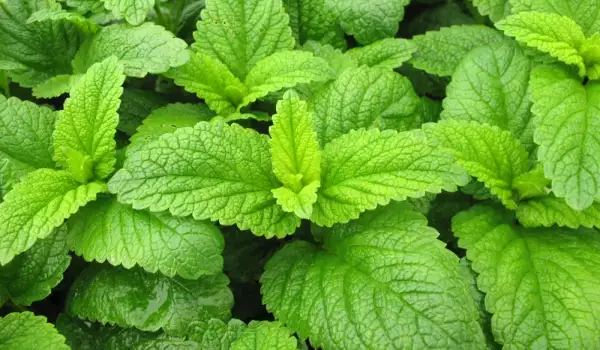
Composition of lemon balm
Lemon balm contains essential oil (0.05-0.33%), tannins, bitter and mucilaginous substances, caffeic acid, enzymes, ursolic acid, oleic acid, etc.
The pleasant aroma of lemon balm, which has bloomed and attracts insects, is due to the terpenes - citronellal, citronellol, citral and geraniol. The sedative effect of lemon balm is due to citral. In addition, the drug contains the triterpene ursolic and oleanolic acids, 5% tanning substances and the sugar stachyose.
Selection and storage of lemon balm
Lemon blam can be purchased from a number of stores, but you can also pick it yourself. The drying of lemon balm takes about a week. Store dried lemon balm leaves in paper bags or cardboard boxes, avoid plastic bags. Place them in a dry and cool room.
Culinary use of lemon balm
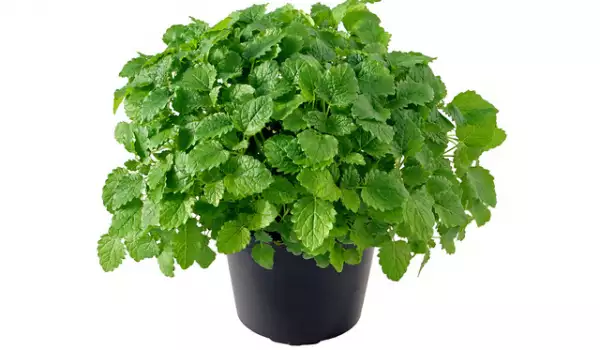
Lemon balm leaves were used as far back as the ancient Greeks and Romans for their pleasant, refreshing scent reminiscent of lemon peel. Today, lemon balm is used in the preparation of mulled wine and liqueurs. It is not good to mix lemon balm with strong spices like mint, nutmeg, ginger. The flavor of fish is emphasized quite well with dried lemon balm.
Benefits of lemon balm
Lemon balm has a calming effect on the nervous system, has an antispastic and anticonvulsant effect. Stimulates appetite and digestion processes, suppresses nausea and vomiting. In folk medicine, lemon balm leaves are used to treat high blood pressure, dizziness, headaches, to enhance vision and even tinnitus. It is used for gurgling and gargling in inflammation of the gums and oral mucosa. Lemon balm also removes bad breath.
Lemon balm oil also finds great use in the treatment of all kinds of bacterial, fungal and eczema infections due to its antiseptic properties. Massages with it relieve arthritic and rheumatic pains.
The herb has a calming and antispastic (anti-spasm) effect. Lemon balm improves sleep, removes the feeling of excitement and tension, removes irritability, anxiety, worry, fear. This herb has an overall beneficial effect on the nervous system - it has a positive effect on Alzheimer's disease, attention deficit hyperactivity disorder, depression, hysteria, insomnia, melancholy, migraine, nervous tension, sharpens memory, in stressful conditions, cardiac neurosis.
Method of preparation: Pour one teaspoon of chopped lemon balm leaves with 100 ml of boiling water. After 30-60 minutes, strain the infusion and drink it. In the evening, the effect is especially good. For more persistent conditions, drink 3-4 tea cups of the prepared infusion.

You can also cure herpes with lemon balm. To do this, mash half a handful of lemon balm leaves along with 2 tbsp. vaseline. Stir, until a homogeneous mixture is obtained and leave it in a dark and warm place for 2 days. Apply the pomade to the cold sore and it will disappear within a day or two. Lemon balm has a beneficial effect on heart diseases - it helps to overcome fatigue, helps to stop tachycardia and pain in the area of the heart.
When preparations with lemon balm are taken, breathing slows down, rhythm disturbances disappear and blood pressure decreases.
Lemon balm has a marked antispasmodic and carminative effect in functional bowel diseases. It can relieve colic from holding gas in the intestines, but also stop the urge to vomit.
Lemon balm stimulates digestion and excretion that of bilious juice, in greater quantities excites the appetite. Preparations based on lemon balm are also used for dizziness, to enhance vision, painful menstruation, skin rashes, rheumatic swellings. In the form of poultices, lemon balm is used very successfully to treat boils.
Alcoholic extract of lemon balm
Put fresh lemon balm leaves in a glass jar and cover it with 50% rubbing alcohol. Put the jar in a dark and cool place for at least 1 month or more. Then strain and store it in the same way. If you cannot take lemon balm extract on its own. Dissolve 1 tsp. of it in 100 ml of water. Take it 3-4 times a day before meals.
Harms from lemon balm
Lemon balm is contraindicated for pregnant women and nursing mothers. If you are taking sedatives or thyroid medications to regulate the activity of the thyroid gland, it is a good idea to consult a doctor before starting to use lemon balm. You also need a doctor's opinion and permission if you have acute inflammation of the stomach and intestines, acute cough, liver disease or epilepsy.
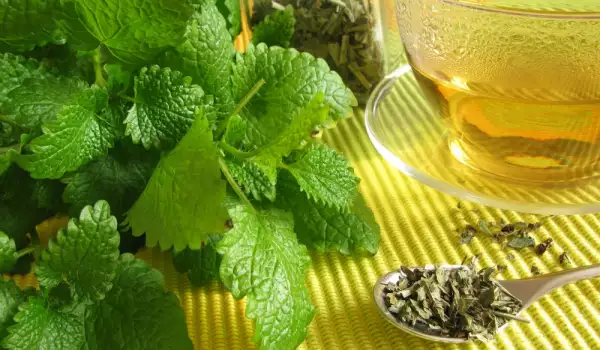

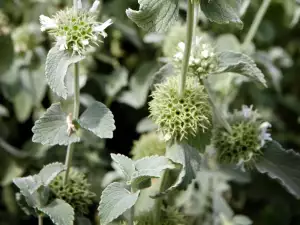
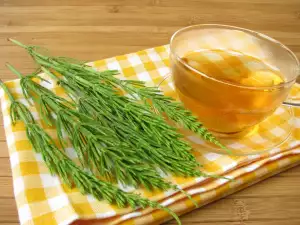



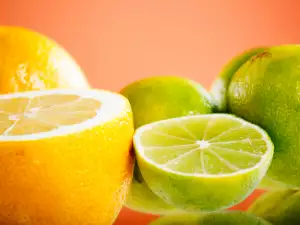



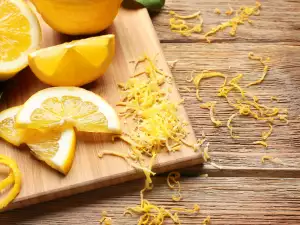








Comments